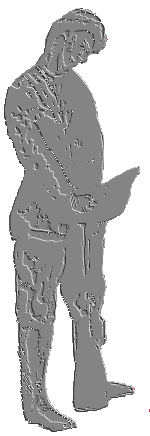 |
THE IRISH IN UNIFORM
WORLD WAR 1 |
|
Recruiting
Poster World War I Nor law, nor duty bade me fight, Nor public men, nor cheering crowds, A lonely impuse of delight Drove to this tumult in the clouds I balanced all, brought all to mind, The years to come seemed waste of breath, Waste of years, the years behind In balance with this life, this death. [ from "An Irish airman foretells his death"] W. B. Yeats |
The involvement of the Irish in the conflict which was called, at the time "The Great War" or " The War to end all wars", and later became known as "World War I", is an area of history which quickly became obscured in Ireland by the mists of time. This conflict involved combatant armies from five continents, and thus became known as a World War. After they had invaded Belgium, The "Central Powers" of Austria-Hungary, Germany, Hungary, Bulgaria and Turkey were opposed by France, Britain, Montenegro, Italy, Rumania, Portugal, Greece, United States of America, Cuba, Honduras, Panama, Guatemala, Nicaragua, Brazil, Costa Rica, Haiti, Siam (now called Thailand), Liberia, China, and Japan. The Armed Forces of France, Britain and its Empire, and The United States fought against the armies of the Central Powers on the battlefields of France, Belgium, Turkey and Palestine. This war is a subject rarely spoken about, even in the families and communities of the 50,000 Irishmen who gave their lives for the cause of freedom in Europe on the battlefields of France and Belgium. The reasons for this obscurity are complex. Naturally, the men who returned from the horror of the trenches were reluctant to discuss the traumas they had experienced. Whilst they were away fighting in Europe, the Irish at home had in 1916 staged The Easter Rising against British Rule, and the Fight for Irish Independence had begun. Returning Irishmen who had fought in The British Army were often thought of as traitors to the Irish Cause. Some sympathised with the freedom fighters and even handed over their weapons to them; several other returning "Tommies" were shot by their compatriots as a warning to others. Little wonder that all the bitterness of the Irish Civil War, plus the horrors of trench warfare caused the First World War to become a 'taboo' subject, rarely referred to even in the homes of those awarded medals for gallantry during the fighting in Europe. Yet it is a fact that many thousands of Irishmen volunteered to join the Armed Forces of the British Commonwealth, fought and died alongside Canadians, Indians, Australians, New Zealanders, Frenchmen, Belgians and Americans against the Central Powers for the cause of Freedom in Europe - a freedom gained through brave service and heroic sacrifice. |
| At the start of The Great War, Germany had 4.2 million troops, Austria-Hungary had 0.8 million, France had 3.7 million, Russia had 1.2 million, Great Britain (including Irish regiments) had 0.7 million and Italy had 0.7 million. The Austrian-Hungarian Empire suffered more than 1.2 million war dead and 3.6 million wounded. Germany estimated that it lost 1.9 million dead and 4.3 million wounded. Russia suffered 3.8 million war deaths. France had 1.4 million dead or mssing, and 3.6 million wounded. The forces of The British Empire had almost 1 million dead or missing, and 2.2 million wounded. The United Kingdom had 745,000 casualties, of which some 50,000 were dead Irishmen. The Italians fought on only a very narrow front, yet lost a figure of 460,000 dead (almost half the total British Empire dead on all fronts worldwide). Turkey estimated their losses at 2.3 million. The United States of America entered the war in 1918, and suffered 116,000 dead, 206,000 wounded and 4,5000 missing or or made prisoner. | |
"Over the top" |
|
| The follow-on section of pages reached via the button below gives details of the major battles and military campaigns of World War 1 for the years 1914 to 1918 and is designed to be used, together with the knowledge of the regiment served in, to assist researchers to find out which actions individual soldiers are likely to have taken part in. It may also aid relatives to find out from official military records where particular Irish soldiers died. The pages are set in a 6-page loop which comes back to this page. | |
| Use this small arrow button to go to the 1914 page .... | ||